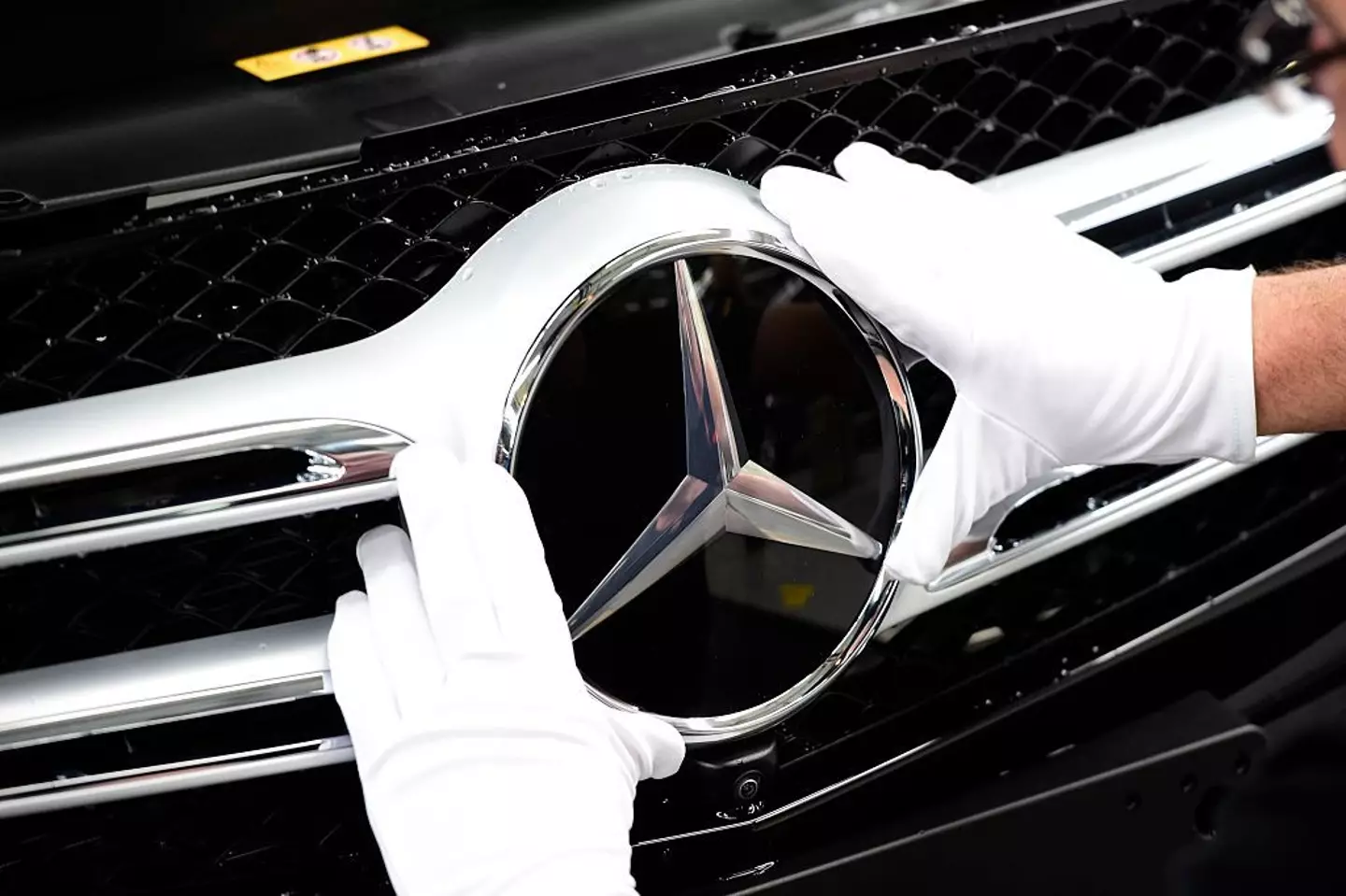Most of us have grown up thinking we nailed the pronunciation of one of the world’s most iconic car brands—Mercedes. However, you might be surprised to learn that many people have actually been saying it wrong all along. Despite being around for nearly a century and representing luxury, elegance, and German engineering, “Mercedes” isn’t as straightforward to pronounce as you might think. Let’s dive into the story of this brand, the origins of its name, and, most importantly, how to finally say it correctly.

The Origins of Mercedes: A Name Steeped in Family History
Mercedes-Benz, the prestigious German auto brand, has its roots in the early 1900s. Founded in 1926 through a merger between the companies of Karl Benz and Gottlieb Daimler, Mercedes has grown to symbolize sophistication and excellence in the automotive world. The name “Mercedes” itself, however, is a tribute to Emile Jellinek’s daughter. Jellinek, an influential businessman and car enthusiast, was so invested in the brand that he insisted it be named after his beloved daughter, Mercedes.
Little did the founders know that “Mercedes” would grow to become a household name worldwide, associated with luxury, performance, and innovation. But even with its fame, the correct pronunciation of the brand name often gets lost in translation.
How Most People Pronounce “Mercedes” – And Why It’s Incorrect
In English-speaking countries, “Mercedes” is commonly pronounced as “Mer-SAY-deez.” This pronunciation has become so ingrained in our culture that it seems natural, especially since it’s widely used by media, car enthusiasts, and even some official brand representatives. But this isn’t how the brand is pronounced in its native Germany.
Saga Car Insurance conducted a study to see how well Brits could pronounce, spell, and even draw the logos of popular car brands. The survey found that “Mercedes” was one of the hardest names to pronounce correctly. Only 20% of participants could say it authentically, as the majority opted for the familiar “Mer-SAY-deez” pronunciation. This study showed just how far off the mark most people are with this common pronunciation.
The Correct German Pronunciation: “Mertz-SAY-dEZ”
In Germany, where the brand originated, “Mercedes” is pronounced with a softer, more nuanced approach: “Mertz-SAY-dez.” The key difference lies in the first syllable. Instead of “Mer,” which sounds more Americanized, Germans pronounce it as “Mertz,” which is closer to the actual linguistic roots of the name. This pronunciation captures the original German inflection and provides a more accurate way of saying it.
The confusion around the pronunciation was even discussed on social media platforms like Reddit. When one user asked for clarification, some German speakers chimed in, explaining that “Mertz-SAY-dez” is the correct way to say it. While “Mer-SAY-deez” isn’t entirely wrong, it does lack the authentic German pronunciation that gives it its true character.
Why the Pronunciation Has Sparked So Much Debate
So why the confusion? Part of the debate comes from how multinational brands are marketed globally. English-speaking countries tend to adjust foreign pronunciations to fit local phonetics, which is why “Mercedes” evolved into “Mer-SAY-deez” over time. Even in the Formula 1 world, fans are split between “Mer-SAY-deez” and “Mertz-SAY-dez,” depending on where they’re from or what they’re accustomed to hearing from broadcasters.

Almost all the Brits participating in the study pronounced the car brand wrongly (Alexander Koerner/Getty Images)
A recent video of Mercedes-Benz CEO Ola Källenius explaining the name’s origin stirred up even more debate. Many fans pointed out that even he pronounced “Mercedes” with a hint of the English “Mer-SAY-deez” accent, possibly to accommodate international viewers.
The Power of the Mercedes Brand: Recognized Despite Pronunciation Differences
While the pronunciation varies, the global recognition of the Mercedes brand remains unwavering. The Saga Car Insurance survey also asked participants to identify and recreate brand logos from memory. Mercedes-Benz ranked among the top brands, with 50% of participants able to accurately recognize its famous three-pointed star logo. When it came to drawing the logo, an impressive 88% managed to replicate it correctly.
And while pronunciation may be tricky, spelling the brand’s name wasn’t as challenging—83% of Brits in the survey could spell “Mercedes-Benz” accurately. This consistency in brand recognition underscores just how powerful Mercedes-Benz has become as a symbol of quality and prestige, transcending language and pronunciation differences.
The Influence of Language and Culture on Brand Names
The case of Mercedes-Benz isn’t unique. Many international brands have names that are pronounced differently across languages and regions. For example, “Porsche” is often mispronounced as “Porsh” instead of the correct “Por-SHUH.” Similarly, brands like “Nike” and “Hermès” have also seen variations in pronunciation due to cultural influences and linguistic adjustments.
Mercedes-Benz CEO Ola Källenius shares how the name 'Mercedes' came about. pic.twitter.com/h7xh29lYv3
— Historic Vids (@historyinmemes) June 12, 2024
The discrepancy with Mercedes-Benz highlights how language influences our perception of global brands. While “Mer-SAY-deez” has become the accepted pronunciation in English-speaking countries, the authentic German pronunciation—“Mertz-SAY-dez”—retains the brand’s original character.
How to Say “Mercedes” Like a Pro
If you’re looking to impress with your pronunciation, remember the German version: “Mertz-SAY-dez.” Practice saying it a few times, focusing on softening the “Mer” into “Mertz” and ending with “dez” instead of “deez.” While it might feel unusual at first, using the correct pronunciation is a nod to the brand’s rich heritage.
Saying “Mertz-SAY-dez” not only honors the brand’s origins but also pays respect to its founders and the story behind the name. Next time you’re talking about the iconic car brand, try saying it the German way—you might just surprise your friends with your newfound knowledge.
Conclusion: Embracing the Authenticity of “Mertz-SAY-dez”
The story of Mercedes-Benz, from its foundation to its rise as a luxury automotive icon, is intertwined with culture, language, and heritage. While most people may know the brand as “Mer-SAY-deez,” the true German pronunciation, “Mertz-SAY-dez,” brings us closer to the brand’s roots. So, next time you find yourself talking about Mercedes, remember the history and try out the authentic German pronunciation. It’s a small change, but one that acknowledges the depth and legacy behind this world-renowned brand.


